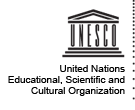Model Policy for Inclusive ICTs in Education of Persons with Disabilities is available nowadays for national adaptation
Today, the effective application of Information and Communication Technologies (ICT) in education is a key policy priority for many countries around the world. However, inclusion of persons with disabilities is often not adequately ensured, encouraged and supported with necessary normative and legislative instruments, allocation of sufficient resources and funding mechanisms. To help its Member States to establish linkages between different legislative and policy fields such as education, technology and human rights, UNESCO, together with G3ICT and European Agency for Special Needs and Inclusive Education, brought together key stakeholders from public and private sector, leading experts in inclusive education and ICT, civil society and persons with disabilities for the elaboration of a Model Policy for Inclusive Information and Communication Technologies (ICTs) in Education.
The purpose of the Model Policy is to serve as resource document for developing the contents of new national policy documents, existing policy documents, or individual sections or annexes as resources for auditing or implementing existing policies. Building on the United Nations Convention on the Rights of Persons with Disabilities (2006), specifically Articles: 9 Accessibility; Article 21: Freedom of Expression and Opinion, and Access to Information; Article 24 Education, the document provides the rationale and practical steps for:
- Integration of inclusive ICTs in education for inclusion of persons with disabilities,
- Identification of key requirements for national legislation,
- Establishment of concrete policy objectives and actions,
- Development of a national implementation strategy, and
- Setting up a coherent and effective financial mechanism.
The document also includes templates for benchmarking and monitoring the completion of the policy actions, a list of key questions proposed for the elaboration of policy agenda, and a technical glossary.
The Model Policy for Inclusive Information and Communication Technologies (ICTs) in Education is now available in English in Open Access under the Attribution-ShareAlike 3.0 IGO (CC-BY-SA 3.0 IGO) license and will be available shortly also in French.
<- Back to: News articles

